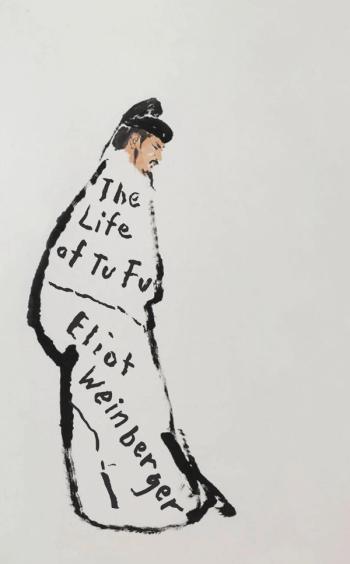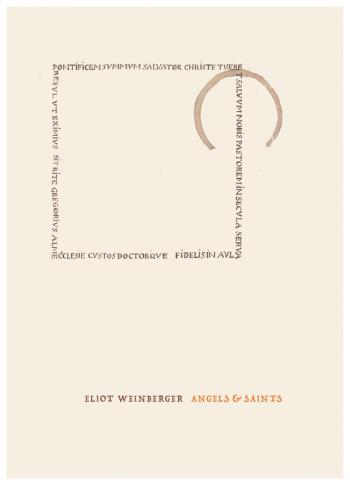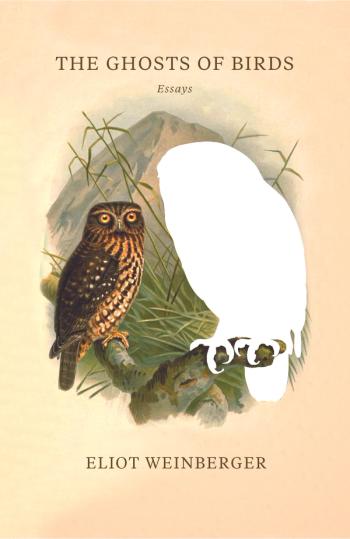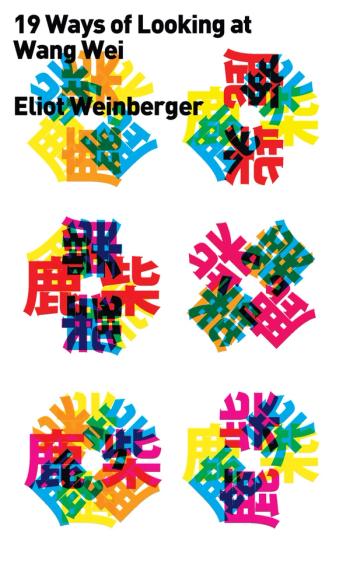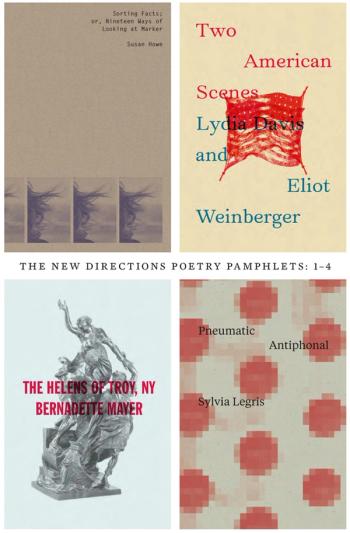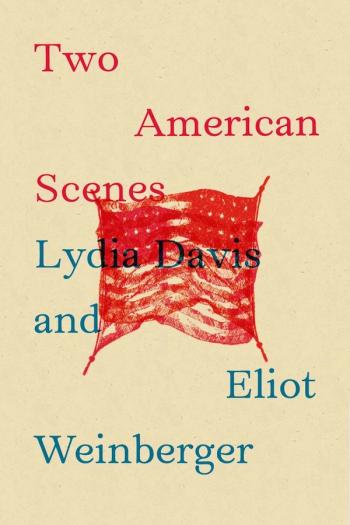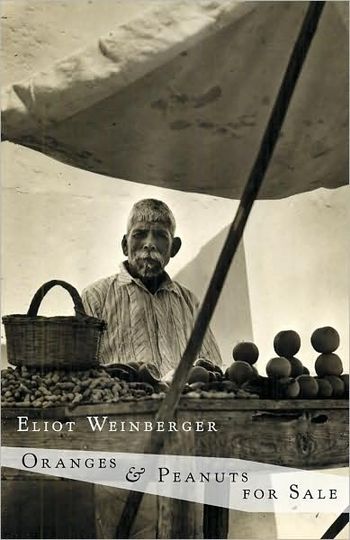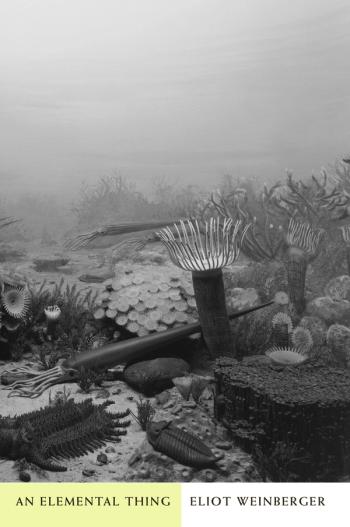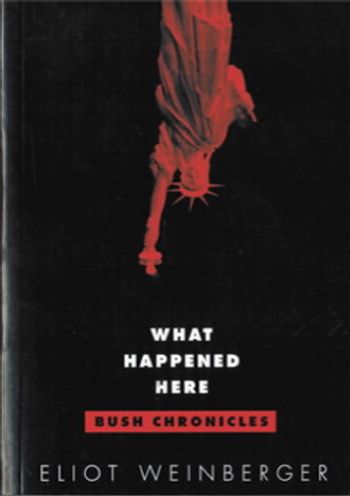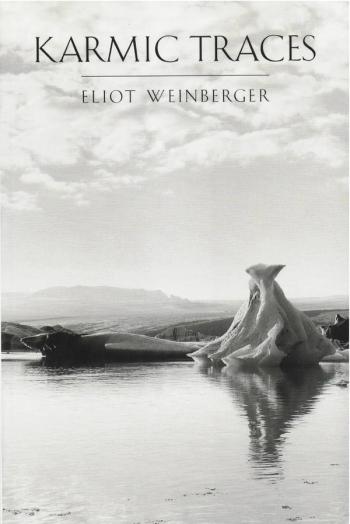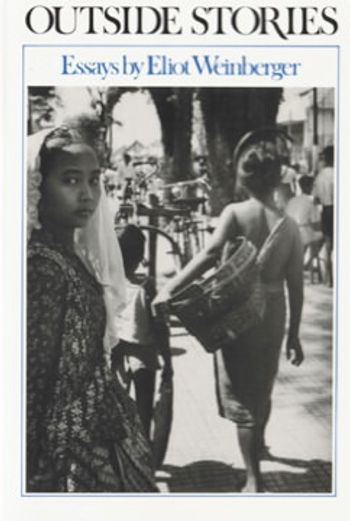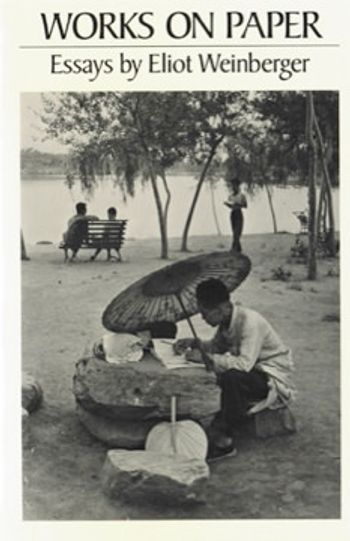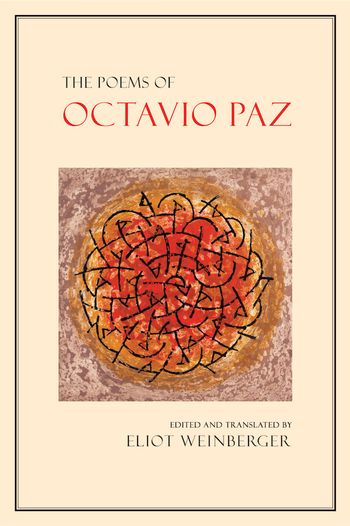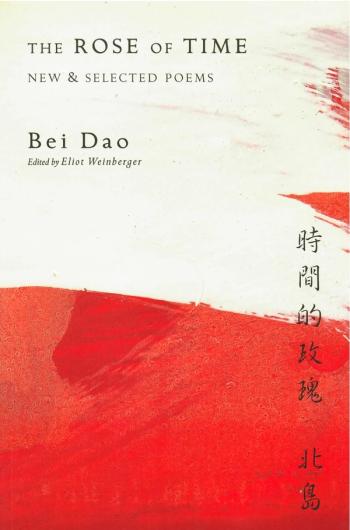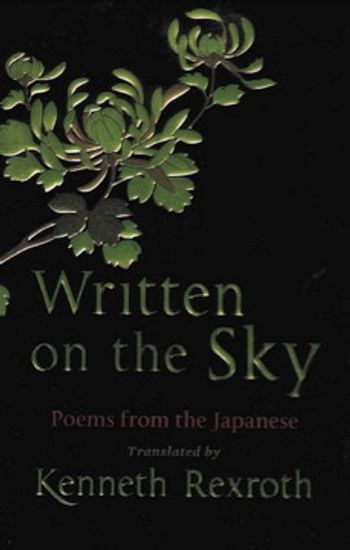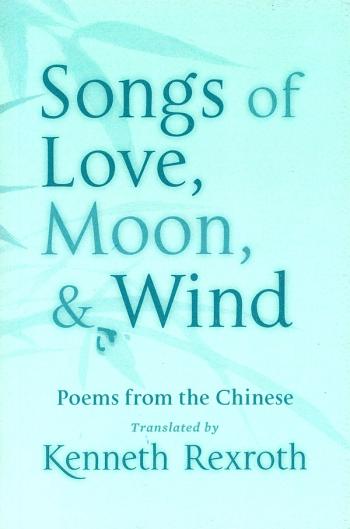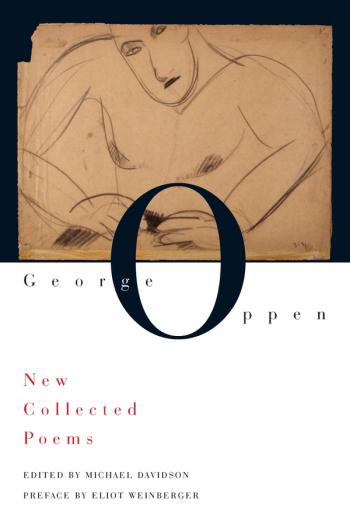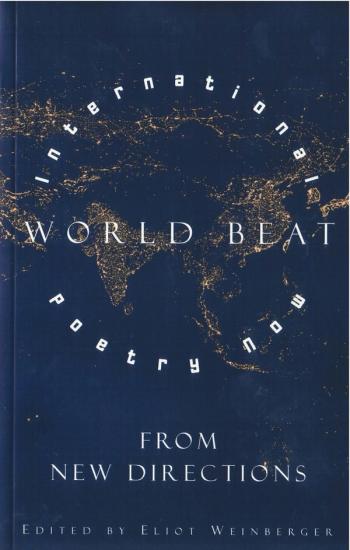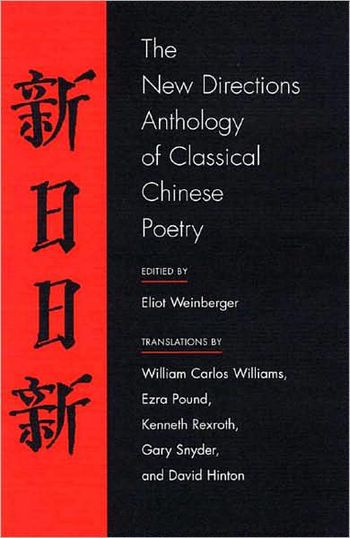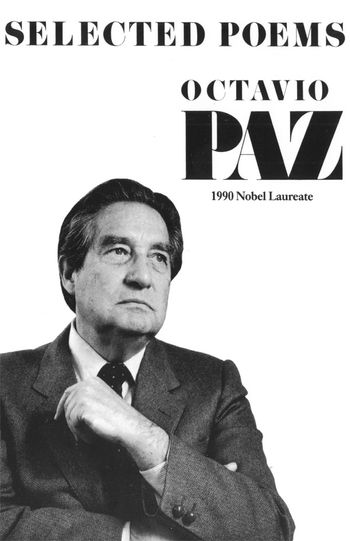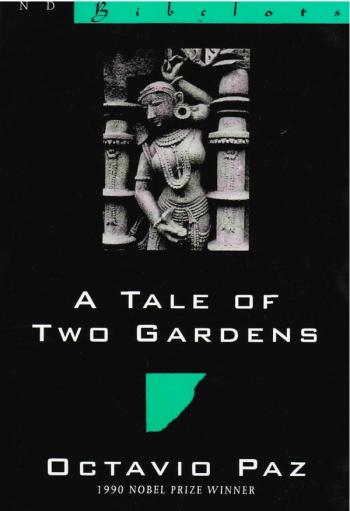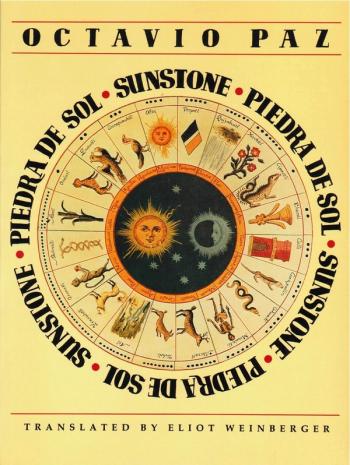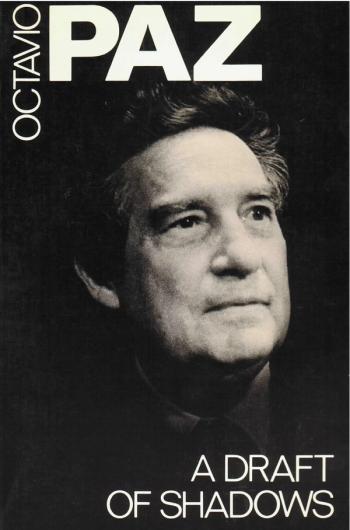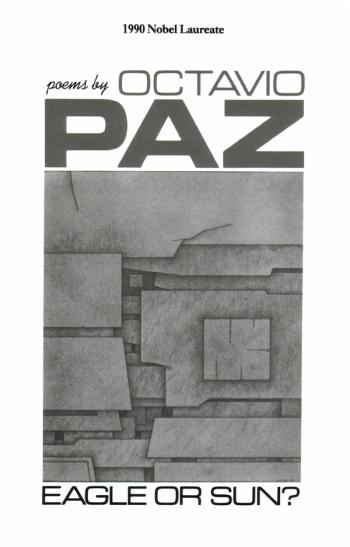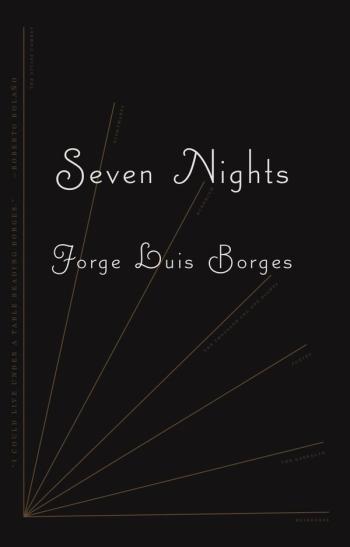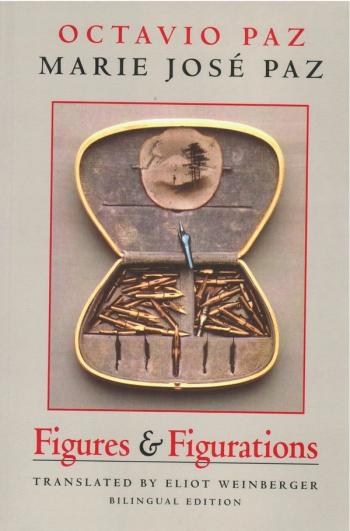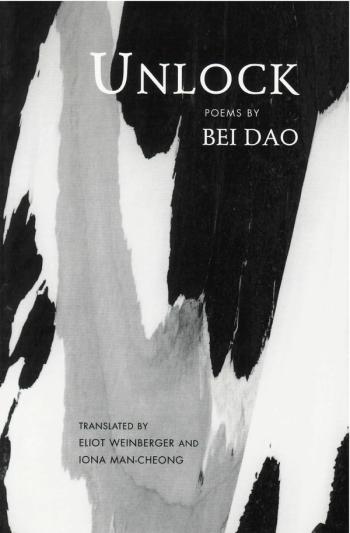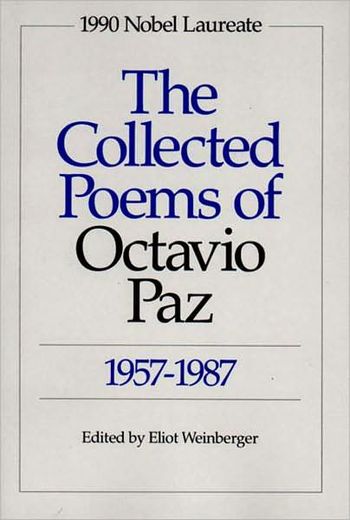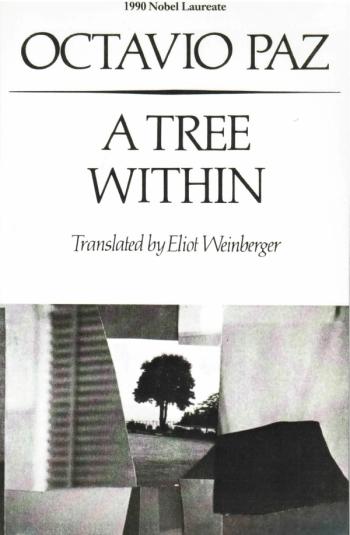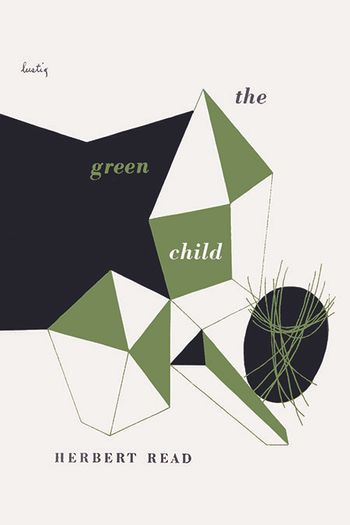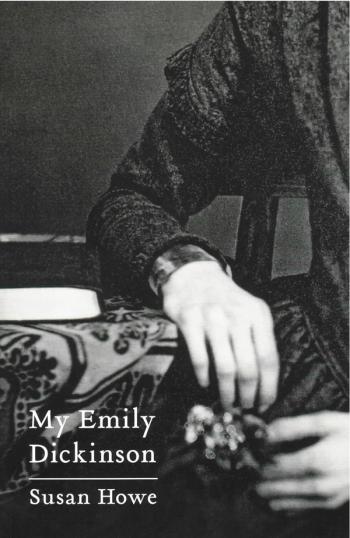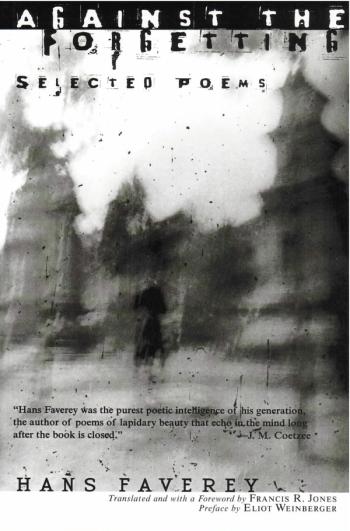As author
The Life of Tu Fu
Angels & Saints
The Ghosts of Birds
Nineteen Ways of Looking at Wang Wei
Poetry Pamphlets 1–4
Two American Scenes
Oranges & Peanuts For Sale
An Elemental Thing
What Happened Here
Karmic Traces
Outside Stories
Works On Paper
As editor
The Poems of Octavio Paz
The Rose Of Time
Written On The Sky
Songs Of Love, Moon & Wind
New Collected Poems of George Oppen
World Beat
The New Directions Anthology Of Classical Chinese Poetry
Selected Poems of Octavio Paz
A Tale Of Two Gardens
Sunstone
A Draft Of Shadows
Eagle Or Sun?
As translator
The Poems of Octavio Paz
The Rose Of Time
Seven Nights
Figures & Figurations
Selected Poems of Octavio Paz
Unlock
A Tale Of Two Gardens
Sunstone
Collected Poems 1957-1987
A Tree Within
A Draft Of Shadows
Eagle Or Sun?
As contributor
Eliot Weinberger
Eliot Weinberger’s books of literary essays include Karmic Traces, An Elemental Thing, The Ghosts of Birds, and Angels & Saints. His political writings are collected in What I Heard About Iraq and What Happened Here: Bush Chronicles. The author of a study of Chinese poetry translation, 19 Ways of Looking at Wang Wei, he is a translator of the poetry of Bei Dao, the editor of The New Directions Anthology of Classical Chinese Poetry, and the general editor of the series Calligrams: Writings from and on China. Among his translations of Latin American poetry and prose are The Poems of Octavio Paz, Paz’s In Light of India, Vicente Huidobro’s Altazor, Xavier Villaurrutia’s Nostalgia for Death, and Jorge Luis Borges’ Seven Nights and Selected Non-Fictions. His work has been translated into over thirty languages, and he has been publishing with New Directions since 1975.

